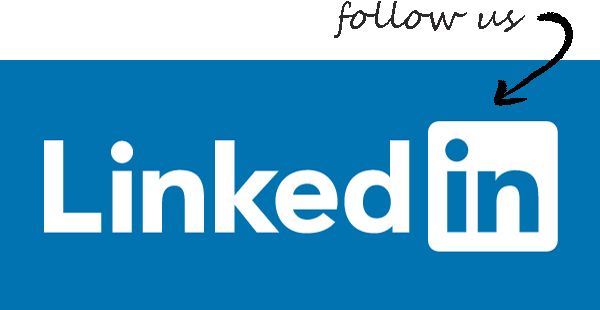
 Web Content Display
Web Content Display
News
 Web Content Display
Web Content Display
Alumni Stories: Agnieszka Pierzyńska-Mach
"It gives me great satisfaction when I have to introduce myself, to say that I am a biophysicist. And it’s a very nice feeling to see that, thanks to my background, I can actually participate in scientific discussions and research that hooks into both fields. Interdisciplinarity in research is absolutely unavoidable at some stage, and it has been very helpful in my professional development that I have grown up with this interdisciplinarity since my early years at university. This worked well both in preparing for various exams and in working on my own grant."
Name and surname: Agnieszka Pierzyńska-Mach
Place of residence: Genoa, Italy
Position: Experienced Researcher Marie Curie Postdoctoral Fellow at the Istituto Italiano di Tecnologia
Degree subject at the Jagiellonian University: Biophysics at the Faculty of Biochemistry, Biophysics and Biotechnology
What is your best memory of studying at the Jagiellonian University?
My definitely best memory of studying there is the people. From serious, humble, experienced professors to carefree students who feel at ease in any situation. When I studied biophysics, the faculty was relatively young. There were only a dozen or so students per year. When we took our first steps in science, I felt as if we were stuck between these two worlds. In those days, most of my energy was devoted to the ‘Nobel’ Biophysics Students’ Association, with which we organised many events bridging us, young students, with the big world of science. Sometimes we took trips to the mountains and sometimes took part in serious conferences or workshops for secondary school students. This is definitely my best memory from my time at university.
How did your career begin? What were the turning points?
I could say that my career started when I chose the topic of my MA thesis, which I wrote under the supervision of professor Jerzy Dobrucki at the Department of Cell Biophysics. Working in a laboratory, devising series of experiments, pondering hypotheses, testing and analysing results, somehow arriving at this tiny fragment of a larger whole, is what definitely excites me. I'd be lying if I didn't say that many times I wanted to throw in the towel because again and again some experiment didn't work out because of technical details. But that is the beauty of this profession. A profession that offers unlimited possibilities, that requires creativity, analytical thinking, but also openness to options and cooperation. Realizing that I need someone’s help or point of view has determined the way I work now. The decisive event was going abroad. I had the opportunity to go for an internship (of only one month) to Istituto Italiano di Tecnologia in Italy, where I met fantastic people who helped me in my research at that time and also had the opportunity to work with microscopes that were unavailable in Poland at that time. This cooperation, which lasted only a month, resulted not only in a scientific publication but, in effect, was a springboard for the next stage of my work and life.
How has education contributed to your career development?
I must admit that I am very proud of my education at the Jagiellonian University. Firstly: the Jagiellonian University, full of beautiful traditions (the Italians cannot believe that when I was receiving my doctoral degree the ceremony was held in Latin), secondly: my faculty, with which I have become very close through the organisation of conferences, workshops, meetings or even the May Picnic, and thirdly: the biophysics department itself. I often encounter in my current work an informal division between those who are ‘bio’ and those who are science majors. It gives me great satisfaction when I have to introduce myself, to say that I am a biophysicist. And it’s a very nice feeling to see that, thanks to my background, I can actually participate in scientific discussions and research that hooks into both fields. Interdisciplinarity in research is absolutely unavoidable at some stage, and it has been very helpful in my professional development that I have grown up with this interdisciplinarity since my early years at university. This worked well both in preparing for various exams and in working on my own grant.
Please tell us about your current job. What are you doing now?
I currently work at the Istituto Italiano di Tecnologia, in Genoa, northern Italy. This is an international research institute with teams working on a wide range of endeavours: from artificial intelligence and robots (like the iCub robot), to producing so-called smart-materials, to developing microscopy and super-resolution techniques. I am part of professor Alberto Diaspro’s team in the nanoscopy group, working in a PostDoc role. In the last year I have been conducting research for my grant – Experienced Researcher Marie Curie Postdoctoral Fellow, Horizon2020. In my project, codenamed qCHROMDEK (841661), I focus on studying the function of the DEK protein, which is an indicator of many types of cancer. This protein is important because it’s been studied quite extensively in clinical trials on patients or patient-derived tissues. What I am concerned with, however, is the spatial distribution of the cell nucleus in cells from a breast cancer model and its effect on the organisation of chromatin, which may itself undergo organisational changes depending on the degree of tumourigenesis of the tissue. This is the very biological part. The more physics part is the methods I use (super-resolution microscopy) which not only gives us improved optical resolution but also the ability to use a whole range of photophysical processes without which this super-resolution aspect would not be possible. I am fortunate to have tremendous support from teammates (engineers, physicists, computer scientists) who have been developing microscopy methods from the ground up, and thanks to people like me, we can use these methods to work together.
What are your biggest challenges now?
It was a challenge in itself to come to Italy after a PhD, when, after all, we still have a supervisor to show us which way is better and which is harder. A PostDoc position, and certainly your own grant, requires a degree of independence. This independence is what many scientists dream about, but for others it is a challenge. I belonged to the latter group. It was hard for me to believe that I would bear the risk of deciding on my own which way my project would go. The breakthrough came somewhere in the middle of my project, when I made a hypothesis, tested it, and it turned out as I thought it would. The next experiment, and the next, confirmed that I had taken the right risks, opened myself up to discussions, new research methods, and sought out collaborative partners. The next bigger challenges I see on the horizon are the next phase of work. The PostDoc position can't go on indefinitely, and as I gain experience I realise that I could actually do this job and do it well. Maybe one day in the future to advise people who are at the start of their career, maybe to guide someone, maybe to win more grants for myself and others? This prospect is both exciting and intimidating.
What is your definition of success?
I think it’s a relative term, but when it comes to scientific work, sometimes success can be a fantastic publication and sometimes it can be hard, everyday laboratory work. When you are in science, you have to remember that sometimes success also includes a touch of luck. Sometimes you can do one great experiment, but that doesn’t mean that all the work is behind you and you can rest on your laurels. Sometimes we can win an award, but that doesn’t mean we should get ahead of ourselves. Success, big or small, is part of the job, because we are constantly being evaluated and compared, our CV, our list of publications, conference presentations and so on. This is indeed some kind of measure of our work, some kind of non-subjective criterion necessary for evaluation. However, in my approach, success can be measured otherwise. I would also consider success as the opening of the mind to new collaboration, new ideas for research, new trips.
What tips do you have for students who are just entering the job market?
If someone wants to stay in science after graduation and try their hand at a PhD or PostDoc, I would advise them to be proactive and look around for options. There are plenty of smaller or larger grants, at a very local level (within the university), national or international. I remember the feeling from my student days, when full of verve I told myself ‘sky’s the limit!’ And I tried to apply to many open calls in a very wide range of scientific areas of interest to me. Once I was reimbursed for a trip to a prestigious conference, where I could listen to an inspiring lecture by a Nobel Prize winner, I went for the month-long internship to Italy, and I even flew for a two-week intensive training in soft skills and business at the Ivey Business School in Canada. If I hadn't given myself that chance, if I hadn’t believed in myself even when others told me it wasn’t worth it, these events would never have happened. Some of them are fond memories, and some of them have determined my future life. Certainly, these kinds of experiences cannot replace the hard skills and knowledge gained from college courses, fluent English, or many first-name academic publications, but it is through such experiences that you meet people and open your mind.
How do you envision the Jagiellonian University’s collaboration with graduates? What can graduates expect from the Jagiellonian University?
It’s a beautiful thing that as graduates we can still feel part of the community of the Jagiellonian University. I think that such an important stage of life as college remains in the memory of all graduates and they often return to it in their thoughts. Our experiences can help current students, so I think a form of workshops, webinars, mentoring would provide us with the opportunity for continued involvement in university life. In this way we can tell young students about our experiences at university, after university, what we faced, how we overcame problems, where we found solutions. Graduates can expect the University to involve them in some international activity – after all, many of the University’s graduates have also gone abroad. But these activities could take place not only with current students. There are many Jagiellonian University graduates, even if we are talking about people from related faculties and similar years, we don't all know each other. Many of these people are already working in other places, maybe other fields or other countries. I think it would be a good idea to create an alumni database where, even if we no longer study at the same university, we can still find each other and perhaps work together on joint research. After all, we are linked by our Alma Mater.

